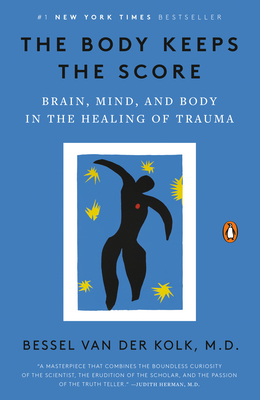Description
In spite of great improvements in prehospital, critical care, and surgical management, traumatic brain injury is still a leading cause of death and disability resulting in great socioeconomic burden. This book provides a comprehensive and practical perspective of the management of traumatic brain injury, from prehospital setting to discharge.
Even more, the book highlights the importance of pathways (Trauma Center and Neurocritical Care Unit) and the central role of the specialized neurocritical care team and neurological critical care units in the practice of neurocritical care. Encouraging a practical, protocol-driven, multidisciplinary approach for both adult and pediatric patients, the authors provide a methodological description of the diagnostic and therapeutic management of patients with traumatic brain injury throughout the patient journey. Neuromonitoring assumes predominant importance, with an increasing role of noninvasive monitoring (near-infrared spectroscopy, Pupillometry, transcranial color Doppler-TCD, transcranial color duplex-TCCD, and optic nerve ultrasound) and neurophysiology (electroencephalography and evoked potentials) for early recognition of complications and rapid assessment of the effectiveness of medical treatment. However, the increasing amount of data increases the complexity of interpreting the collected information. The basic principles of multimodal monitoring and the computer-assisted method are presented to provide an overview of the future direction regarding the integration and interpretation of different data obtained from various techniques.
Paying particular attention to prognosis and treatment-limiting decisions, the authors reviewed the critical role of neurorehabilitation and the clinical and bioethical perspective on brain death, organ donation, and communication with the family.
About the Author
Etrusca Brogi, MD, is an intensivist specializing in Neuroanaesthesia and Neurointensive Care at Pisa University Hospital. Her principal filed of interest are the management of the polytrauma patient, especially spinal and head trauma, and intra / inter hospital transfers of critically ill patients. She served as reviewer for various journals, and she authored several articles published in long-time indexed journal on ultrasound in intensive care, and trauma brain injury. She is also the author of several chapter for Springer book series. Federico Coccolini, MD, is Professor of Surgery at the Pisa Universuty and consultant in general, emergency and trauma surgery at the Pisa University Hospital, one of the biggest Level I trauma centres in Italy. He has a deep and documented experience in managing post-traumatic and non-post-traumatic patients. His principal interests are emergency surgery, trauma surgery, advanced oncology, oncologic gastrointestinal surgery, laparoscopic and minimally invasive surgery, tissue engineering and experimental surgery, evidence-based medicine, and surgery. He is the principal investigator of multicentre studies and registers, and authored hundreds of papers and tens of book chapters. He edited a Textbook of Emergency General Surgery, several books and a book series. He served as reviewer for several journals. He is the Vice President of the World Society of Emergency Surgery (WSES) and of the World Journal of Emergency Surgery (WJES), head of the scientific committee of the EVTM Society, member of the Executive Committee of the Italian Society of Emergency Surgery and Trauma, Italian Society of Geriatric Surgery and of the Italian Society of Surgical Physiopathology. Prof. Coccolini is a recognized world opinion leader in emergency general surgery and trauma. Eric J. Ley, MD, FACS, is a surgeon specializing in trauma and acute care surgery in the Department of Surgery at the Cedars-Sinai Medical Center. He is a Professor of Surgery at Cedars-Sinai and Health Sciences Clinical Professor at the University of California, Los Angeles. Dr. Ley is the Medical Director of the Surgical Intensive Care Unit and Program Director of the Trauma and Surgical Critical Care Fellowship. His benchtop research focus is on the mechanisms for secondary injury after trauma with a focus on the role of the beta adrenergic response. Dr. Ley's clinical research centers on the human factors in surgery systems, serving as co editor for a textbook on this subject. Dr. Ley has a specific interest in preventing venous thromboembolism after trauma and recently led the efforts to revise the national guidelines for venous thromboembolism prophylaxis for the Western Trauma Association.Alex Valadka, MD, serves as Professor of Neurological Surgery at the University of Texas Southwestern Medical Center in Dallas, where he is Chief of Neurological Surgery at Parkland Memorial Hospital. Hehas had a career-long clinical and research interest in neurotrauma and critical care, including numerous papers, presentations, research grants, courses, seminars, and visiting professorships. He has served in numerous leadership roles in neurosurgery and neurotrauma, including President of the American Association of Neurological Surgeons, Director of the American Board of Neurological Surgery, Chair of the Neurosurgical Specialty Group of the American College of Surgeons Committee on Trauma, and membership on numerous study sections, data and safety monitoring boards, and similar activities for the NIH and other organizations.


